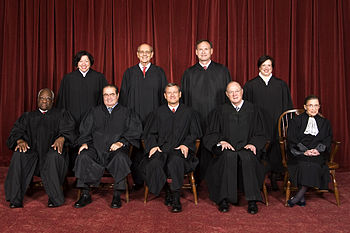By Ian Jones @IDJONESPHOTOG
Life is complex for everyone. On top of school, we’ve all got our own worries and responsibilities. I’ve got a lot going on, and I’m willing to bet you do too. Births. Classes. Jobs. Weddings. Funerals. Court cases.
Sometimes, we overbook our calendars. Other times, priorities get reshuffled, whether by choice or by happenstance.
It’s a tricky balancing act sometimes, and it’s something we can all relate to.
Life is strange for everyone. We’ve all experienced serendipity and coincidence: I just found out two friends are connected, and I had no idea. (Thanks, Facebook!)
Life is what happens when you’re busy making other plans… for everyone. In situation A, we have every reason to expect Outcome B to happen, but sometimes, Outcome C happens instead.
It happened to John Lennon, it happens to you, and it happens to me, and yes, I’m disabled.
My main objective in this column is to pull back the curtain and show that there’s nothing mysterious. There’s no real difference between the lives of disabled and non-disabled people: in other words, to reveal “sonder”.
Sonder, according to the Dictionary of Obscure Sorrows, is “the realization that each random passerby is living a life as vivid and as complex as your own,” although whether the definition presented is an “official” one or if it’s relatively new, I can’t say. Let’s assume it’s a standard definition for now.
It seems society tends to still look at the disabled as if we’re one-dimensional people. Last semester, I wrote about the late disability activist Stella Young, who noted in her TED talk that the disabled are typically seen as objects of inspiration, not actually people.
Personally, I’ve only encountered some of that. I’ve even met people who seem surprised that I’m able to live such a full life. “It’s good to see you out and about,” I’ve heard from more than a few people I’ve… just met. Uh, thanks?
We’re the world’s largest minority group — ten percent of the population, according to the United Nations — I look forward to the day we’re treated as people who have lives that are as complex and boring as your average Joe, because we really do, for the most part.
Sorry, folks: there’s no great mystery behind our lives. Things really are mostly humdrum for a lot of us.
We have our triumphs, and we get into ruts and routine. The disabled may deal with some issues different from yours, but everybody’s got a lot of the same problems.
On the opposite side of the coin, I’ve got talents, but I shouldn’t be singled out for them just on the basis of my disability.
Don’t get me wrong, when someone says something like “it’s good to see you out”, I know the person isn’t consciously trying to be malicious. But it still comes across wrong, somehow.
It feels presumptuous to assume that due to one’s physical or learning disabilities that some people aren’t able to have a complex life. Believe me, we do.



